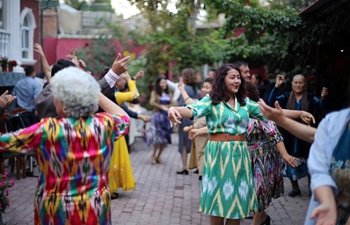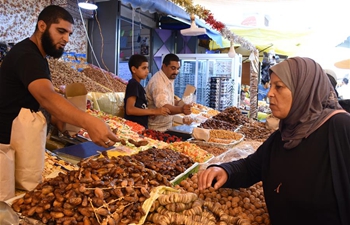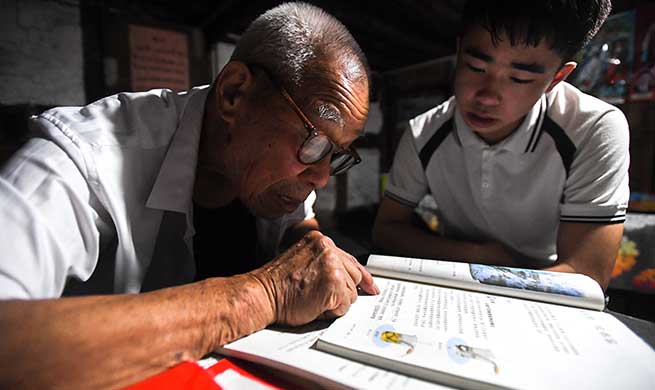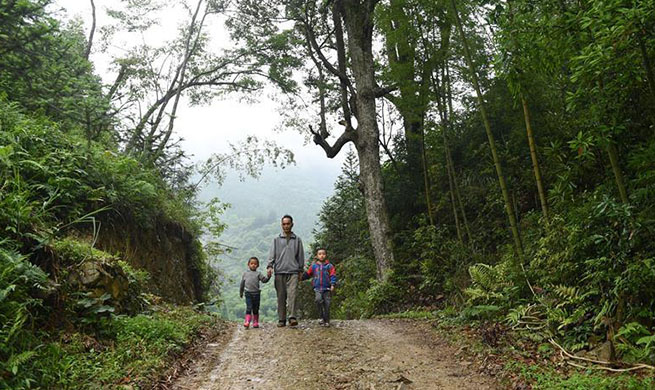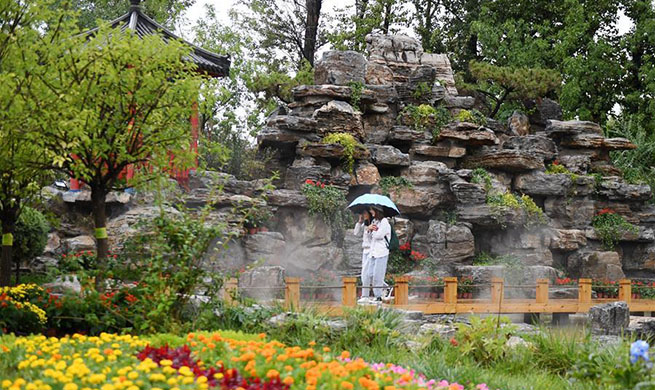CHANGSHA, Sept. 10 (Xinhua) -- Qiu Qingjiang, 84, was shocked when he escorted his granddaughter to a village school where she works in a mountainous area in central China's Hunan Province.
The four-story school, with multi-media classrooms and brand new air-conditioners, is far different from the images the old teacher has of the 60 years he spent teaching in village schools.
He started to work at a village primary school in Xinhua County in the province in 1959. "The school was an old house built around cow and pig pens. We always smelled the stench of the livestock during class," he said.
"I was so distressed to see that a lot of students could not afford school and would drop out, so I helped them as much as I could," he added.
However, teaching at the "smelly" school was still much better than the experiences faced by his father, Qiu Songshan, who served as the principal of a village school and taught Chinese in Ziyang Township in the province before the founding of the People's Republic of China in 1949.
"My father's school did not have classrooms," he recalled. "Students needed to bring stools from home and go to class at the ancestral halls of villagers."
"His salary was merely some rice that was paid to him by the students' parents," he added.
His daughter, Qiu Xianghong, began to work as a teacher in a primary school in Jiqing Township in the county in 1993 when China issued a guideline to promote nine-year compulsory education and eradicate illiteracy.
Her school, unlike her father's and grandfather's, "evolved" into a two-story building. "Poor students can receive subsidies, and nutritious lunches are available for students in all townships thanks to the country's supportive policies," she said.
Growing up with her grandfather's stories of village schools in hard times, Qiu Lingyi, 24, was ready to have a rough experience when she registered to work at Tianhua middle school in a mountainous area in the county.
"The school is well beyond my imagination and is completely different from those schools in my grandfather's stories," she said.
Apart from multi-media classrooms and air-conditioners, the school also built a new playground with a soccer pitch using the funds provided by the provincial government. With digital devices equipped in the classrooms, the students can have access to online courses.
Hunan invested more than 32.25 billion yuan (4.53 billion U.S. dollars) to upgrade infrastructure of schools in poverty-stricken areas.
"Classrooms and campuses have changed as time goes by, but teachers' duty of cultivating students has not," said Qiu Qingjiang.






